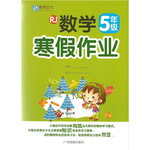题目内容
14.Forcing children to learn will not improve their development or raise their chances of getting into elite schools,an educator at an international school has warned.Hong Kong parents like to fill their children's schedules each day with extracurricular lessons,such as piano,swimming and painting.Parents hope the additional skills will help their children stand out in admissions interviews for the top schools.
"It's good to expose your child to possibilities,but it's not good to keep pushing them to try things."said Professor Deborah Eyre,education director of Nord Anglia Education,which opens an international school in Lam Tin."You also want children to think,reflect and develop themselves as individuals."
"We value what parents do.We know that they're trying to do the best for their child.But what's important is that children come to school loving learning and wanting to learn,"Eyre said.
It has been reported that some parents enroll their children in two kindergartens-an English-language one in the morning and another one in Chinese in the afternoon.
"For children,it's important to have good education but'it's also important that they have more informal learning which they do with their family,"Eyre said."If you want your child to have a good vocabulary,you can read and talk to your child.They will learn better with you than they would in a kindergarten."
Eyre,a former director of the UK government's academy for gifted youth,offered the example of Scandinavian countries such as Norway,where children do not formally take part in reading or writing until the age of seven.Rather than negatively affecting their development,it helped them get to know the world.
"Internationally,the educator's role is to introduce some formal learning but also to value play and discovery with young children who are trying to understand the world around them."she said.We need to help them to discover for themselves.
28.What does the word"elite"in Paragraph 1refer to?C
A.Primary. B.High. C.Top. D.Average.
29.What can we know about Hong Kong parents?B
A.They usually adjust the subjects to their children's taste
B.They hope their children have more skills
C.They think it's no good pushing their children to try new things
D.They teach their children how to be independent
30.From Eyre's point of view,how can children have a good vocabulary?A
A.Being exposed to parents'reading and talking.
B.Talking with their peers.
C.Using more new words from an early age.
D.Learning carefully in the kindergarten.
31.What can we know in Norway?D
A.Children have no access to books before the age of seven.
B.The current educational approaches negatively affect children's growth.
C.Play is classified as formal learning.
D.Children are encouraged to understand the world.
分析 本文是一篇科教类阅读,主要探讨了如何才是教育孩子的正确之道.
解答 28-31.CBAD
28题答案:C考查细节推理,根据文章第二段的Parents hope the additional skills will help their children stand out in admissions interviews for the top schools.
父母希望额外的技能能够帮助他们的孩子在进入顶尖学校的入学面试中出类拔萃.可知"top"是与第一段的"elite"呼应,故本题答案为C选项.
29题答案:B考查细节推理,根据文章第二段的Hong Kong parents like to fill their children's schedules each day with extracurricular lessons,such as piano,swimming and painting.香港的父母每天喜欢用诸如钢琴、游泳及绘画等额外课程塞满他们孩子的日程.可知本题答案为B选项.
30题答案:A考查细节推理,根据文章倒数第三段的If you want your child to have a good vocabulary,you can read and talk to your child.如果你想要孩子词汇量好,你可以读书给孩子听或者是与孩子交流.可知A选项"使孩子暴露于父母的阅读与交流中"与此表达一致,故本题答案为A选项.
31题答案:D考查细节推理,根据文章倒数第二段的such as Norway,where children do not formally take part in reading or writing until the age of seven.Rather than negatively affecting their development,it helped them get to know the world."…比如,在挪威孩子们直到七岁才正规地接受阅读或写作,这样做并未负面影响到他们的发展,而是帮助他们了解世界"可知本题答案为D选项.
点评 本文是一篇科教类阅读,题目涉及多道细节理解题,做题时结合原文和题目有针对 性找出相关语句进行仔细分析,结合选项选出正确答案.推理判断也是要在抓住关键句子的基础上合理的分析才能得出正确的答案.

 黎明文化寒假作业系列答案
黎明文化寒假作业系列答案